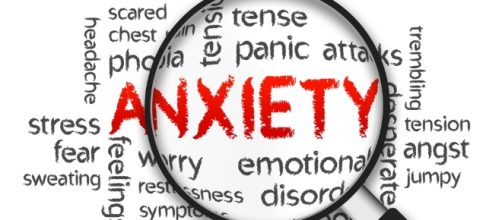Many people who suffer from anxiety don't have an actual diagnosis. The different levels, symptoms, and severity can help hide the fact that you suffer from a treatable condition. This means that you could unknowingly suffer from this disorder, and not be aware enough to get treatment. Excessive worry can add a weight to your life that you don’t even notice, but treatment and awareness can help you improve your Quality Of Life. There are many different ways that you can treat this disorder, including prescriptions and supplements. Talk to your healthcare professional if you think you suffer from anxiety, or just want more information on the disorder.
Worry or anxiety
The most difficult part about anxiety is finding out where it crosses the line from normal worrying, and becomes an actual disorder. One of the most common ways to differentiate between everyday worries that are just part of the human condition, and a disorder is how it impacts your life. If you start finding that your worrying is causing you to lower your quality of life, it is time to seek out some help.
Irrational fear and anxiety
Anxiety is known to just go right through logic. When you cannot talk yourself out of being worried for no reason, you should look into finding treatment for anxiety. Fear and worries that most people experience are there to keep yourself from danger; when there is no danger present, it is likely caused by some sort of anxiety disorder.
This is where anxiety is more focused on specific issues, and is usually referred to as phobias.
Social anxiety
Social anxiety is commonly faced by many people, and impacts our ability to live fulfilling lives. While we don't really know what causes this disorder, but some research suggests that genes and neurotransmitters may be to blame. It can be so acute that you may have trouble even working. Making meaningful connections can be difficult or down right impossible. If you find yourself constantly second guessing any of your daily interactions, you will likely want to talk to a doctor about treatment plans.
Health problems associated with anxiety
There are many different health problems that are associated with anxiety disorders.
Poor sleep is common in people who suffer from anxiety disorders. Your digestive track can also show signs of anxiety with indigestion or heartburn. It is also common to see people who have anxiety disorders also have high blood pressure, which can lead to a host of other problems. With the negative impact to your health, professionals do recommend you seek treatment for your anxiety.
Panic attacks
People often assume that you need to have a Panic Attack to have an anxiety disorder, and this is not true. A panic attack, however, is a very clear sign that you are suffering from higher than normal levels of worry. These can be triggered by events, or just happen spontaneously. Rapid breathing, increase heart rate, and the inability to think clearly are all signs of a panic attack. Treatment of your anxiety should include developing methods to cope with all signs of this disorder, including panic attacks.

